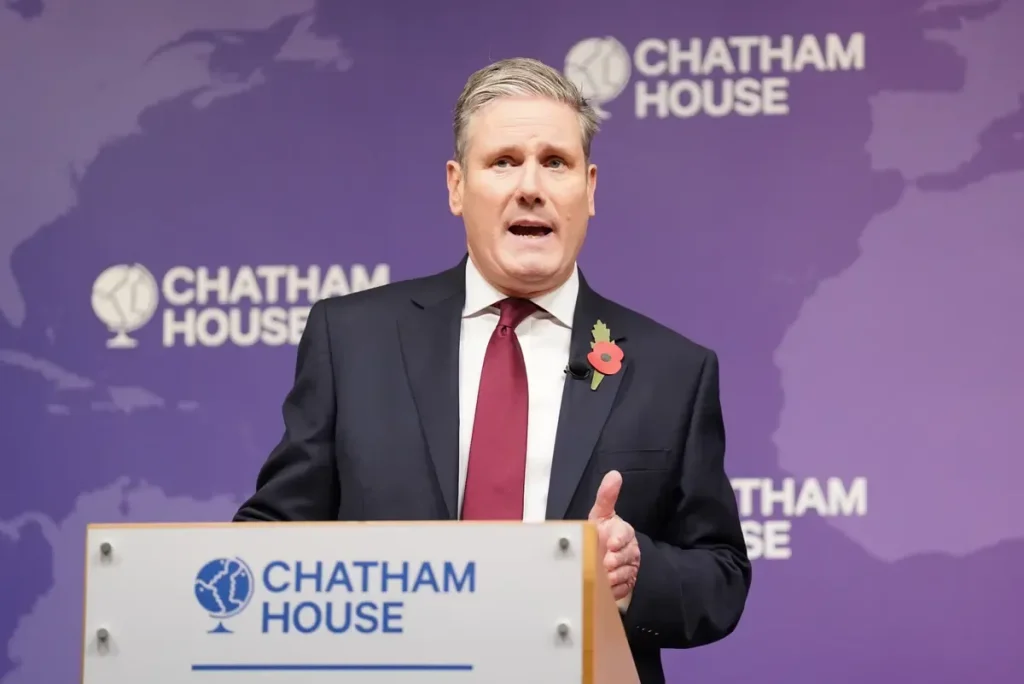Sir Keir Starmer lost ten frontbenchers on Wednesday as more than a quarter of Labour MPs rebelled to vote for an immediate ceasefire in Gaza.
Labour proposed an alternative amendment to the King’s Speech Motion to back “humanitarian pauses” in Gaza, but 56 Labour MPs, including eight junior shadow ministers and two parliamentary private secretaries, crossed the party line to support Scottish National Party’s (SNP) amendment to back a ceasefire.
The eight MPs who resigned as shadow ministers to back a ceasefire include Shadow home office ministers Jess Phillips and Naz Shah, shadow defence minister Rachel Hopkins, shadow levelling-up ministers Paula Barker and Sarah Owen, shadow exports minister Afzal Khan, shadow equality minister Yasmin Qureshi, and shadow solicitor general Andy Slaughter.
Pro-Palestinian demonstrators staged a large rally outside Parliament as MPs debated on the votes.
“I can see no route where the current military action does anything but put at risk the hope of peace and security for anyone in the region now and in the future.”
Speaking for the Labour amendment ahead of the vote, shadow home secretary Yvette Cooper told Parliament “we need an urgent suspension of hostilities” and to “work towards a full cessation of violence and enduring peace,”, but none of it can be achieved by a vote.
“We have words on a page that we will talk about voting on today, but we all know that it is not through words on a page that this will be achieved; it will be achieved through step-by-step intense diplomacy and pressure that recognises how difficult it is when Hamas refuse to agree to stop rocket attacks and pledge again to repeat the attacks of Oct. 7,” she said.
The Israel-Hamas war began on Oct. 7 after Hamas terrorists, who control Gaza, attacked Israel, killing more than 1,400. Some bodies, including those of children, have been found to have been burnt, raped, and decapitated.
Israel then ordered a total siege on Gaza and launched missile and ground attacks, with the Hamas-controlled Gaza Health Ministry reporting over 11,320 deaths, including 4,650 children. According to the U.N., almost half of Gaza’s population is under 18.
Speaking against the amendment on calling for a ceasefire, Attorney General Sir Michael Ellis, who is Jewish, said there’s a “rich and sad irony” in the amendment “on a ceasefire in a conflict over which the UK has no control, and a ceasefire that neither side in the conflict wants.”
He accused the SNP of engineering an amendment “incommode and undermine the Labour leadership,” adding, “what they actually undermine is community cohesion and the Jewish community in this country.”
Speaking to Times Radio on Thursday, shadow defence secretary John Healey played down the division within the Labour party, saying there’s a “deeper unity.”
Mr. Healey said he understands and shared the wish to “see an end to the killing and relief for the Palestinian suffering,” and stressed that most Labour MPs backed the party’s position.
“On the front benches, a small number had to resign while the vast majority backed humanitarian pauses—the best way in these circumstances now trying to relieve the suffering—but the deeper unity of the Labour Party was clear last month,” he said.
“At the Labour Party conference, you saw us totally unified and determined in solidarity with Ukraine, behind a plan to help people with the cost of living and in getting rid of an infighting, failing 13 years of Conservative government.”
Meanwhile, Scotland’s First Minister Humza Yousaf, whose parents-in-law were trapped in Gaza for four weeks after the war broke out, has said he is “beyond angry that Scottish Labour MPs and others refused to back the calls for an immediate ceasefire.”
Mr. Yousaf said they were “on the wrong side of history, which is unforgivable,” and said the humanitarian catastrophe in Gaza can’t be allowed to go on “for a second longer.”



